Vaginal Flora
Chaos in the intimate area and problems with digestion are known to many women. But out of shame, many never talk about these issues. Not even to their best friend and certainly not to their own partner. Yet the intestinal and vaginal flora are the cornerstone of female well-being and deserve the appropriate attention and care too!
Contents
Is your vaginal flora balanced?
A balanced vaginal flora plays a decisive role in the well-being of every woman because this protective shield of countless lactobacilli – also known as lactic acid bacteria – is crucial for maintaining the health of the female urogenital tract. By forming lactic acid, these useful bacteria ensure an acidic pH value in the vagina, in which pathogenic germs and fungi cannot multiply.
The vaginal flora is built up from birth through the oral intake of beneficial bacteria. These important symbionts know exactly their destination in the human body and find their place within a very short time. Therefore, especially after taking antibiotics, but also when other problems occur in the vaginal area, it is essential to intake exactly those bacteria orally again, which then colonise the vagina in the shortest possible time.
It is therefore also clear that a healthy intestinal flora is the basis for female well-being – and everything that disturbs the intestinal microbiome also weakens the vaginal flora. Stress and the administration of antibiotics in particular often result in overgrowth of unwanted invaders in the vagina, but hormonal changes (e.g. through the “pill”, pregnancy or menopause) also put a strain on the protective shield in the intimate area: 75 % of women have had a thrush at least once in their lives, every second woman knows what a urinary tract infection feels like, and bacterial vaginosis occurs especially during pregnancy.
Sex and the Vaginal Flora
The connection between bladder infections and sex is painfully familiar to many women. The so-called honeymoon cystitis is a bladder infection that is triggered by sexual intercourse.
The cause of such a disease is usually the body’s own intestinal bacteria, especially the so-called Escherichia coli bacteria. This is because, during sexual intercourse, bacteria can be transported from the woman’s anal area into her urethra through a smear infection. These then make their way into the bladder and irritate the bladder wall, triggering inflammation.

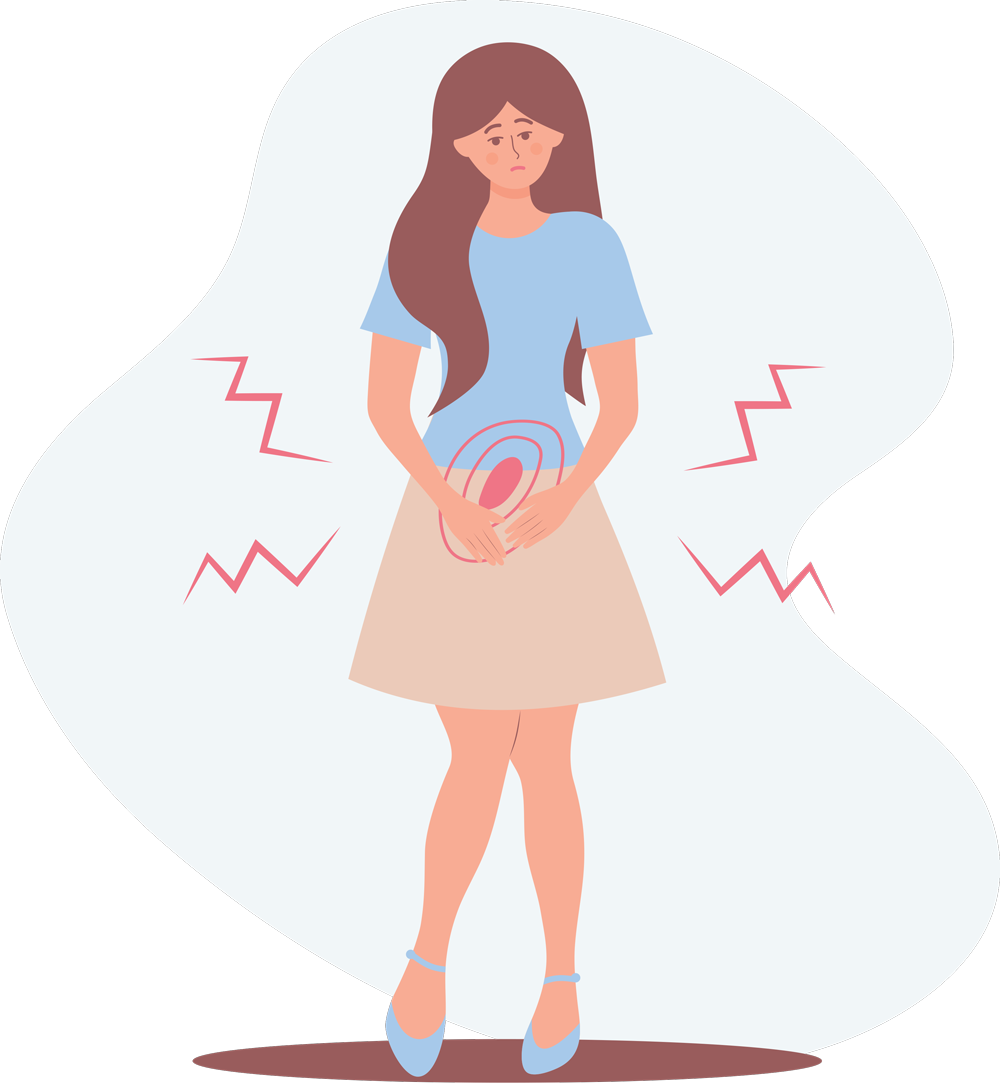
Common Vaginal Infections
Fungi often become an unloved companion in life and cause annoying itching, painful burning and unpleasant discharge time and again. Not only does the health of the urogenital area suffer, but also well-being, self-esteem and love life are massively restricted.
However, new studies show that the composition of the vaginal flora can be clearly improved by simply drinking probiotics: Therefore, the protective shield in the intimate area is strengthened in a natural way and pathogenic germs can be displaced before they wreak havoc in the vaginal tract.
If the pH value in the vagina is disturbed, i.e. not in the optimal acidic range, harmful germs penetrate and can multiply very easily. This excess of bad bacteria, such as Gardnerella vaginalis, the main pathogen of bacterial vaginosis, causes the lactic acid bacteria to be displaced and other pathogens can spread unhindered. At this point, at the latest, you notice an unpleasant feeling in the intimate area.
Typical symptoms of bacterial vaginosis are itching and a thin, white-greyish discharge with a fishy smell. This unpleasant smell is caused by amines that are produced when Gardnerella break down proteins.
Thrush (vaginal mycosis) is one of the most common fungal infections in women. It is caused by yeast, especially Candida albicans. It is estimated that three out of four women will get thrush at least once in their lives.
Common symptoms that occur during the infection are itching, a burning sensation in the vagina, increased, whitish-yellowish crumbly discharge and pain during sexual intercourse.
Mostly, bacterial infections of the intimate area are treated exclusively with antibiotics as a reason for recurring bladder infections, which destroy the beneficial microorganisms again and again and massively damages the protective shield in the intimate area.
Therefore, it is not surprising that numerous women have to struggle with recurring complaints in the intimate area: 60% of women diagnosed with bacterial vaginosis suffer from the symptoms again after six months at the latest.
Fertility & Lactic acid bacteria
Gynaecological medicine is currently focusing on the influence of the vaginal and endometrial microbiome on women’s fertility and, moreover, on the success rate of in vitro fertilisation (IVF). The use of probiotics in the therapy and prevention of negative changes in the vaginal flora and in recurrent infections of the urinary and vaginal tract has proven its worth in recent years.
Especially the pleasant oral intake of probiotic bacteria is a plus for many women. It also promotes a natural colonisation of the vagina with the corresponding microbes. In contrast to the administration of vaginal capsules, the immigration of these probiotic bacteria via the intestine results in the formation of a depot in the intestine, which creates a reservoir for the permanent colonisation of the vagina.
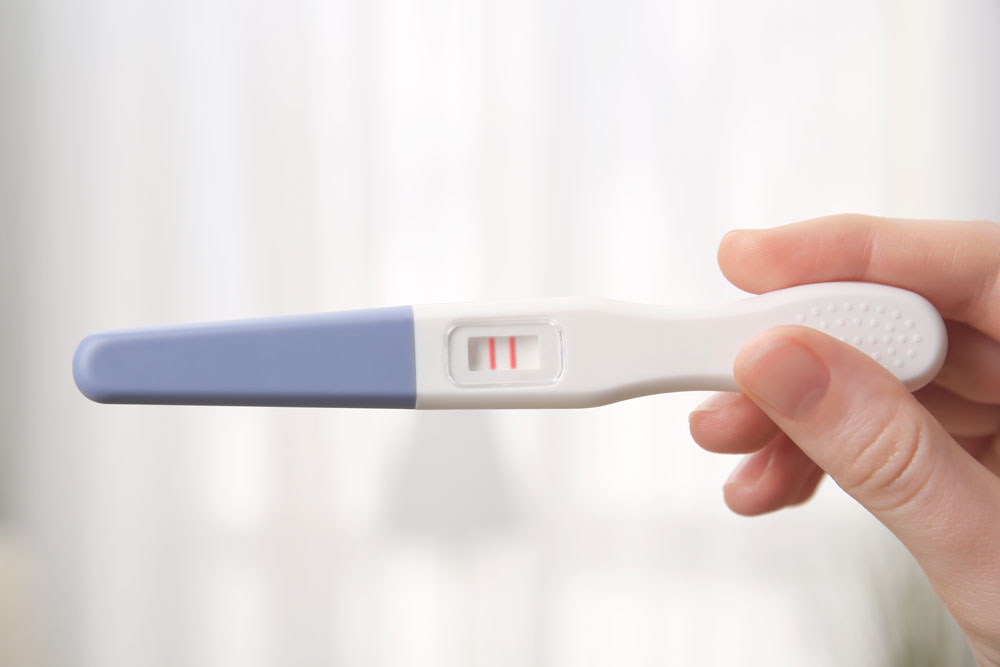
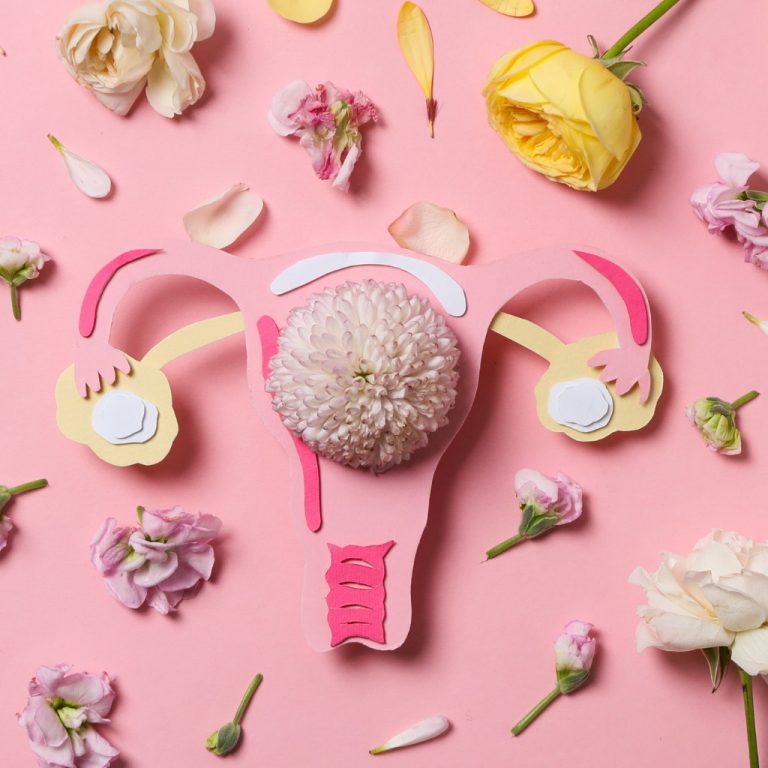
Free Guide to the Vaginal Microbiome
Our guide for women focuses on the vaginal flora!
Read all about bacterial vaginosis, thrush, honeymoon cystitis, vaginal dryness, menopause and much more.
Menopause and the Vaginal Flora
The menopause marks the beginning of a new phase in women's lives. For many, the menopause is symptom-free and they perceive this phase as very positive. The 50-year-old woman of today has changed a lot in her character traits compared to the past. She is not afraid to talk about her problems and addresses unpleasant topics. The third stage of life demands more attention for the body and soul, but it is still a fulfilling time of life with all its advantages. The accompanying symptoms that occur during menopause vary from woman to woman. Many go through the phases almost symptom-free or have only mild complaints.
Learn more about the vaginal microbiome
The Connection between the Gut and the Vaginal Microbiome (Video in German only - auto-translated subtitles available in video settings)
In the woman’s vagina, there are on average about 2 billion bacteria per cubic millimetre of vaginal epithelium. Most of them are pure lactic acid bacteria, which form a protective shield against harmful microorganisms by maintaining an acidic pH in the vagina and maintain the balance of the vaginal flora. Mag. Pharm. Claudia Weinberger tells us in this video which problems can occur in the intimate area and clarifies the latest study results.
The 3 Step Women's Well-Being Concept
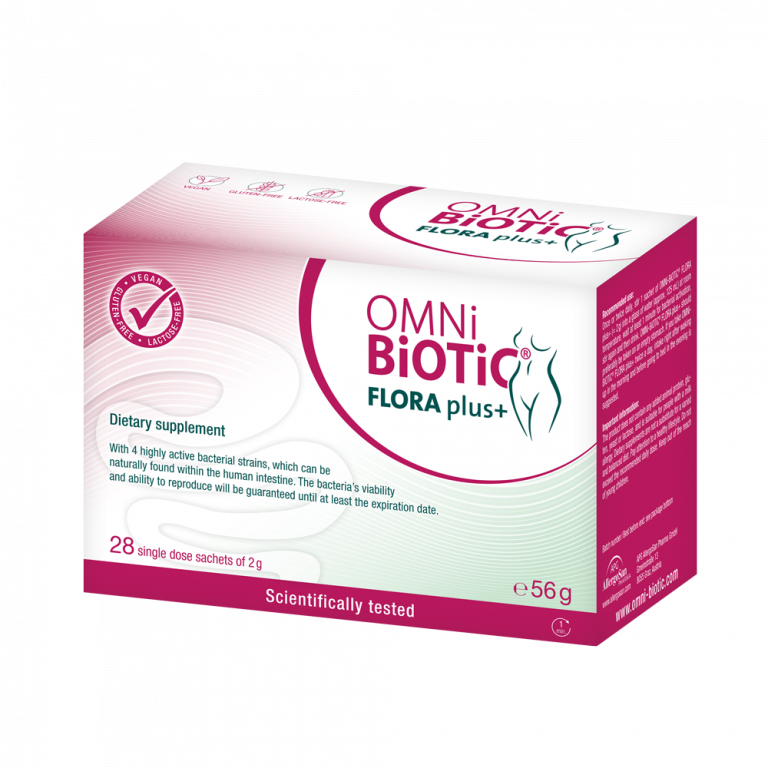
Step 1: OMNi-BiOTiC® FLORA plus+
To regulate the balance of the vaginal flora, probiotics developed specifically for this purpose are an option: OMNi-BiOTiC® FLORA plus+ contains four scientifically combined strains of bacteria that have been selected and tested in clinical studies and are specifically suited to improving the composition of the vaginal flora.
The special feature of OMNi-BiOTiC® FLORA plus+ is that it is taken orally: simply drink it! Your intimate area is colonised in a completely natural way with those lactic acid bacteria that are part of a healthy vaginal flora – without any additional irritants or artificial substances from capsule and suppository shells.
Simply stir 1 sachet of OMNi-BiOTiC® FLORA plus+ in approx. 1/8 l of water 1-2 times a day, wait for 1 minute activation time, stir again and then drink. So you can finally keep your vaginal flora in balance simply and naturally!
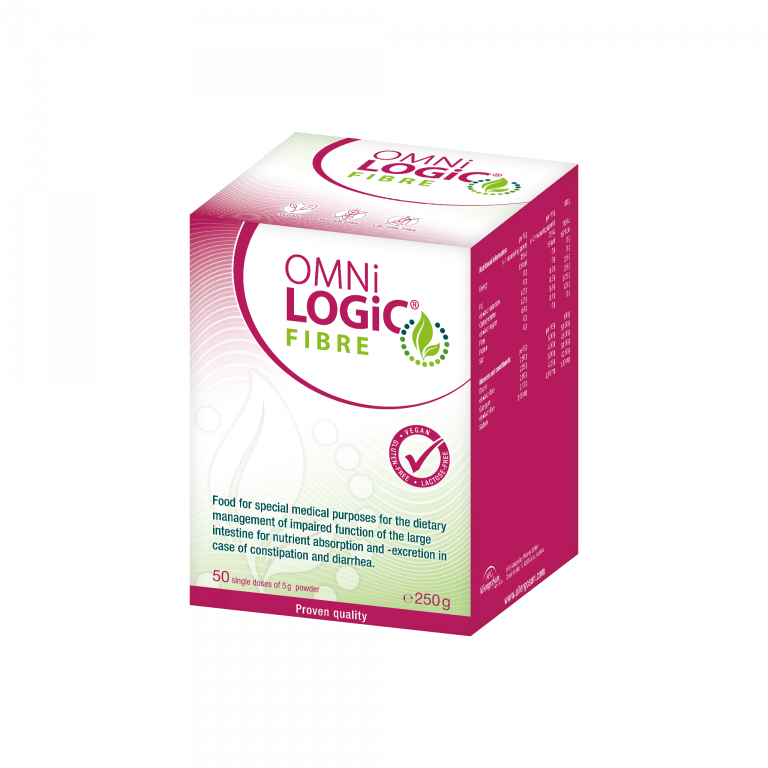
Step 2: OMNi-LOGiC® FIBRE
Over the course of pregnancy, many women notice unpleasant problems in the digestive tract: the hormone balance changes and as a result, among other things, the transport of food is slowed down. In addition, some women have a different diet during pregnancy, which can affect the important intestinal flora.
Especially during pregnancy, a sufficient supply of dietary fibre is therefore of great importance. OMNi-LOGiC® FIBRE provides you with 8.8 g of pure dietary fibre per daily dose from two scientifically well-researched sources. Resistant maize dextrin and guar gum are excellently tolerated and a high-quality food source especially for important bifidobacteria and lactobacilli.
Top tip: You can add OMNi-LOGiC® FIBRE to any liquid (water, juice, tea, yoghurt, soup, …) without changing its taste or consistency! Do something good for your intestines and make up for your fibre deficit – with just 2 x 5 g OMNi-LOGiC® FIBRE per day.

Step 3: META-CARE® Zinc Plus
Many women enjoy shiny hair and radiant skin during pregnancy. The reason for this is that the hormone oestrogen, which is produced in greater quantities, has a positive effect on the hair, which appears strong and healthy. After birth, on the other hand, there are often problems with the skin, hair and nails when the hormone level quickly drops again. A very central nutrient for the body is the trace element zinc.
META-CARE® Zinc Plus was specially developed to prevent the zinc balance from becoming unbalanced. The additionally contained biotin influences numerous metabolic processes, in the nervous system and also contributes significantly to healthy hair growth. As an extra plus, it contains collagen peptides, which are found in the structure of the skin.
Feel good in your skin – with just 1 capsule of META-CARE® Zinc Plus daily!
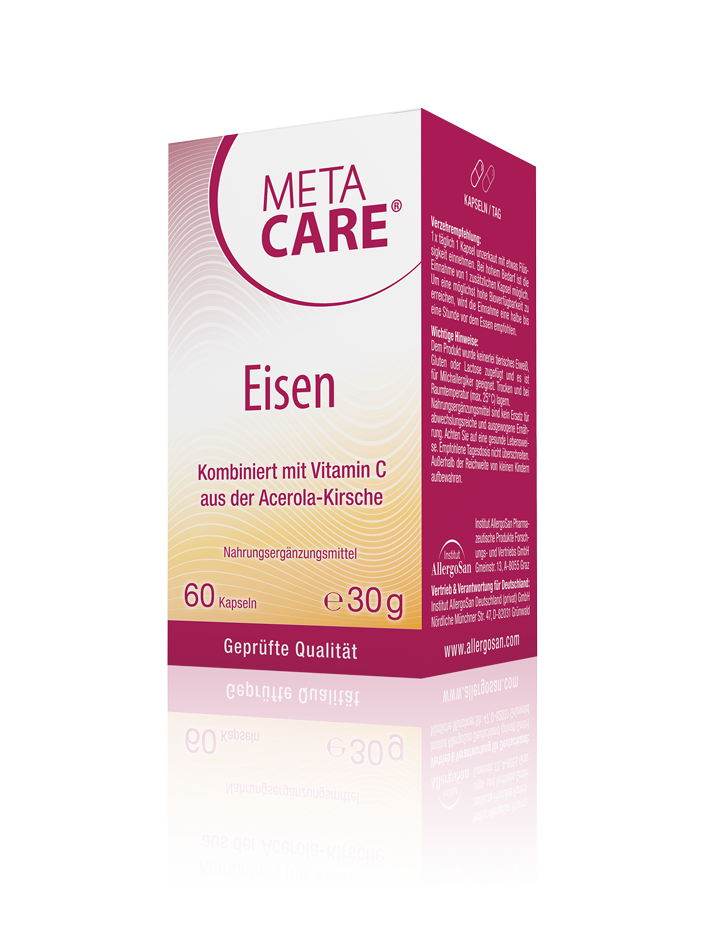
META-CARE® Iron
META-CARE® Iron was developed for the targeted supply of iron, especially in cases of increased need. It combines plant-based iron from the curry leaf with easily bioavailable iron bisglycinate, and therefore contributes to a healthy energy metabolism. The additional vitamin C from the acerola cherry improves the absorption of iron in the human body even more. In addition, folic acid and vitamin B12 make a valuable contribution to the normal formation of red blood cells as well as to reducing tiredness and fatigue – so you have enough power for all your plans!
Take 1 capsule of META-CARE® Iron 1 x daily and take it unchewed with water. If your required intake is high, you can take 1 additional capsule. To achieve the highest possible bioavailability, it is recommended to take this product half an hour to an hour before eating. Nothing stands in the way of a day full of energy!
Any questions? Contact us!
Our highly-qualified consultant team is made up of doctors, pharmacists, biologists, nutritionists and microbiologists. Contact us to get advice regarding our products, your intestines, as well as your microscopic inhabitants.

Help & Advice
Institut AllergoSan
UK
OMNi-BiOTiC® − Blog
Stay informed!
Read more interesting articles about our gut and get tips for your gut health!
OMNi-BiOTiC® − Blog
Stay informed!
Read more interesting articles about our gut and get tips for your gut health!
OMNi-BiOTiC®
Our intestinal bacteria perform at their best every day. Unhealthy diets, stress or medication can change our intestinal flora. The targeted supply of specially selected strains of bacteria – called probiotics – supports our intestines in every phase of life: while taking antibiotics, in particularly demanding times or as a daily go-to for the whole family.
OMNi-LOGiC®
The intestine is the health centre of our body: billions of intestinal bacteria work every day to ensure that digestion and the body’s defences function optimally. In order for these useful helpers to feel at home and fulfil all their important tasks, they need specific dietary fibres as a food source, such as those contained in prebiotics.
META-CARE®
Many individuals struggle to obtain sufficient vitamins, minerals, and trace elements through their diet. Additionally, particularly during periods of elevated stress and heightened mental or physical strain, the body’s demand for nutrients intensifies. The body’s functions can be aided by taking high-quality micronutrients and plant extracts, enhancing your overall health and well-being.
OMNi-BiOTiC® − for a good gut feeling every day
The secret of OMNi-BiOTiC®’s success lies in its innovative formulation and high-quality standards. These are top priorities in developing probiotics and ensuring tangible benefits for users.











